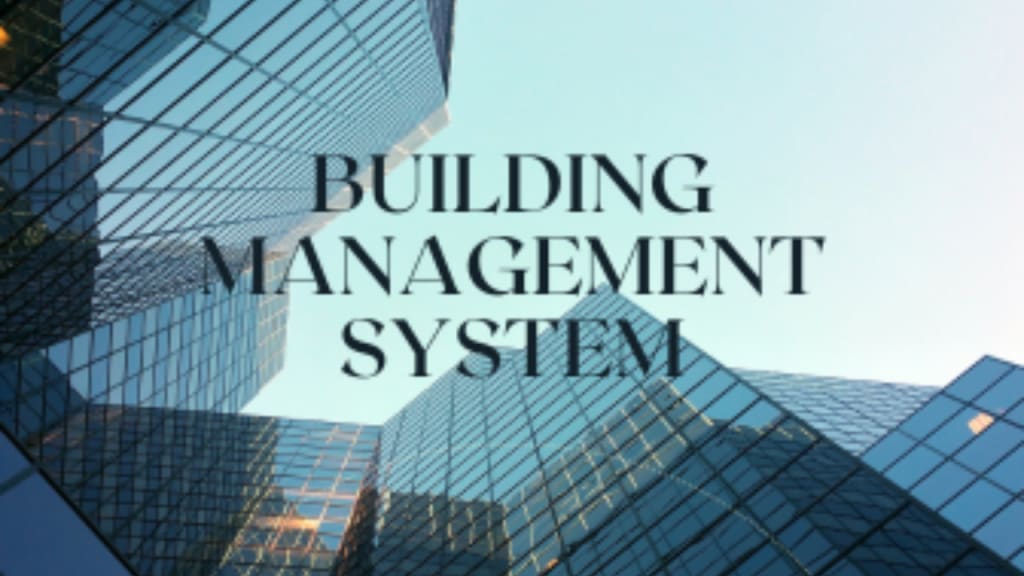Understanding Building Management Systems (BMS)
Enhancing Efficiency and Sustainability

In today's fast-paced world, efficient management and sustainability are crucial factors in the functionality of any commercial or residential building. One way to achieve these objectives is through the implementation of a Building Management System (BMS). A BMS, also known as a Building Automation System (BAS) or Building Control System (BCS), is a sophisticated solution that integrates and centralizes various building operations to enhance efficiency, control, and sustainability.
What is a Building Management System (BMS)?
A Building Management System (BMS) is an intelligent control system that enables the monitoring and management of a building's mechanical, electrical, and electromechanical systems. These systems may include heating, ventilation, air conditioning (HVAC), lighting, power, security, fire alarms, and more. The primary objective of a BMS is to ensure the smooth operation of these building systems, optimize energy usage, and create a comfortable and secure environment for occupants.
Key Components of a Building Management System
A BMS consists of several components that work collaboratively to provide effective building automation and management:
- Sensors and Devices: These components monitor various building parameters, such as temperature, humidity, occupancy, and energy usage. Sensors are the eyes and ears of the BMS, providing crucial data for decision-making.
- Controllers: Controllers are the brains of the BMS, analyzing data from sensors and making real-time adjustments to building systems. They ensure that the building operates efficiently and within specified parameters.
- Software and User Interface: The software acts as the control center, allowing facility managers to monitor and control the building systems through a user-friendly interface. This interface can be accessed through computers, tablets, or smartphones.
- Communication Networks: BMS components communicate with each other via wired or wireless networks, enabling seamless data transfer and system integration.
Benefits of Implementing a Building Management System
1. Energy Efficiency:
A BMS plays a significant role in optimizing energy usage within a building. By monitoring and controlling HVAC, lighting, and other systems, it ensures that energy is used efficiently, leading to reduced energy costs and a smaller carbon footprint.
2. Cost Savings:
Efficient energy management and facility maintenance lead to cost savings in the long run. The BMS identifies areas of improvement, reduces energy waste, and predicts maintenance needs, preventing costly repairs.
3. Improved Comfort and Productivity:
By maintaining optimal environmental conditions, a BMS creates a comfortable space for occupants. Comfortable employees are more productive, and satisfied tenants contribute to better property management.
4. Remote Monitoring and Control:
The BMS allows facility managers to monitor and control the building's systems remotely. This capability enhances response times and enables proactive measures to address issues promptly.
Conclusion
A Building Management System (BMS) is a vital tool for modern building management, offering a range of benefits that positively impact energy efficiency, cost savings, comfort, and productivity. Its integration and careful implementation can significantly enhance the overall operational efficiency and sustainability of a building, making it a valuable investment for property owners and managers alike.
Whether it's in a commercial, industrial, or residential setting, the adoption of a Building Management System represents a step towards a smarter, greener, and more efficient future. Stay tuned to stay updated on the latest advancements in building management technologies and practices, as we continue to strive for a more sustainable built environment.
Quick FAQs
1. What is a Building Management System (BMS)?
A Building Management System (BMS) is a smart control system that manages a building's functions like air conditioning, lighting, and security, making everything work together efficiently.
2. What does a Building Management System (BMS) include?
A BMS includes devices (like sensors), a central control system, and software that help in monitoring and controlling the building's systems.
3. What are the benefits of a Building Management System (BMS)?
A BMS can save energy, reduce costs, make spaces comfortable, and allow remote monitoring for better building management.
4. Can a Building Management System (BMS) be used in homes?
Yes, especially in larger homes, a BMS can control heating, cooling, lighting, and more for increased efficiency and convenience.
5. How does a Building Management System (BMS) help the environment?
By optimizing energy usage, a BMS helps reduce waste and lowers a building's environmental impact, contributing to a greener planet.
6. Is a Building Management System (BMS) affordable for small businesses?
Yes, a BMS can be adapted to fit various budgets and is beneficial for small businesses as it helps in saving on energy costs and improves operations.
For further inquiries or to explore more about Building Management Systems (BMS), don't hesitate to reach out. We're here to assist you in making informed decisions for efficient building management.
About the Creator
Enjoyed the story? Support the Creator.
Subscribe for free to receive all their stories in your feed. You could also pledge your support or give them a one-off tip, letting them know you appreciate their work.





Comments
There are no comments for this story
Be the first to respond and start the conversation.